President Muhammadu Buhari’s ambition to retain power in 2019 may be in serious jeopardy after some powerful backers and power blocs within his ruling All Progressives Congress (APC) decided to or were pushed into joining the main opposition Peoples Democratic Party (PDP).
It all began on November 24, 2017, when one of the leaders of the APC, former Vice President Atiku Abubakar, decided to take a walk from the party after complaining of marginalisation and lack of internal democracy.
In a statement he personally signed, Atiku, who is believed to have contributed massive funds towards the president’s election, explained that he “fell for a mirage” in joining the party.
The statement read in part, “While other parties have purged themselves of the arbitrariness and unconstitutionality that led to fractionalisation, the All Progressives Congress has adopted those same practices and even gone beyond them to institute a regime of a draconian clampdown on all forms of democracy within the party and the government it produced.
“Only last year, a governor produced by the party wrote a secret memorandum to the president which ended up being leaked. In that memo, he admitted that the All Progressives Congress had ‘not only failed to manage expectations of a populace that expected overnight ‘change’ but has failed to deliver even mundane matters of governance’.
“Of the party itself, that same governor said ‘Mr. President, Sir Your relationship with the national leadership of the party, both the formal (NWC) and informal (Asiwaju Bola Tinubu, Atiku Abubakar, Rabiu Musa Kwankwaso), and former Governors of ANPP, PDP (that joined us) and ACN, is perceived by most observers to be at best frosty. Many of them are aggrieved due to what they consider total absence of consultations with them on your part and those you have assigned such duties.’”
“…But more importantly, the party we put in place has failed and continues to fail our people, especially our young people. How can we have a federal cabinet without even one single youth.
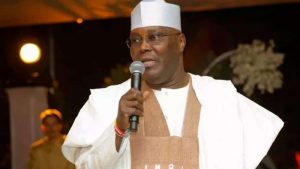
“A party that does not take the youth into account is a dying party. The future belongs to young people.
“I admit that I and others who accepted the invitation to join the APC were eager to make positive changes for our country that we fell for a mirage. Can you blame us for wanting to put a speedy end to the sufferings of the masses of our people?”
While many of the party bigwigs identified with the views expressed by Atiku, and barely stayed behind in APC, arguments exist that the party’s mishandling of the ward, local government and state conventions of the party and the failure to deal with new Peoples Democratic Party (nPDP) agitations were the last straws that broke the camel’s back.
For instance, instead of appeasing the Kawu Baraje-led nPDP bloc, the party decided to play the ostrich, pretending to not care about the invaluable contributions of the likes of Rabiu Kwankwaso, Bukola Saraki, and Aminu Tambuwal to the electoral victory of President Buhari in 2015.
To register their grievances, many of the party’s aggrieved bigwigs, including Senators Kwankwaso (Kano Central) and Sen. Dino Melaye (Kogi West) decided to go about their normal businesses as other party delegates converged on the Eagle’s Square in Abuja on Saturday, June 23 to elect new national party leaders.
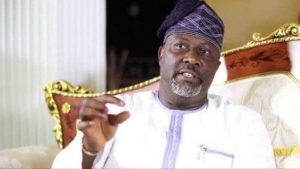


Kwankwaso decided to visit Atiku in his Abuja home and Melaye flew to London as Oshiomhole and co. were being ushered in to pilot the affairs of a party that was already displaying signs of internal turmoil.
The views of Kaduna State Governor and well-known ally of President Buhari, Mallam Nasir el-Rufai, who famously said that the president did not need the nPDP bloc members to win in their respective states was widely accepted as the APC’s de-facto views on the matter, and perhaps contributed to further complicate an already tense situation.
Then the bombshell dropped on Tuesday, July 24: the party lost 14 senators to the PDP, and 37 APC members of the House of Representatives followed suit.
Kwankwaso, who was Kano Governor in 2015 when President Buhari won 1,903,999 votes there, joined 13 other senators to bid farewell to the APC.
Perhaps shaken by this thunderbolt, which Atiku had predicted by telling the APC to expect a political tsunami, Buhari conveyed a meeting of the remaining APC senators in the Upper Chamber.
But in a move believed to be geared towards raised the hopes of the president’s supporters in the north, Transport Minister, Rotimi Amaechi repeated the views expressed by el-Rufai who had said Buhari did not need the nPDP to win, especially in the north.
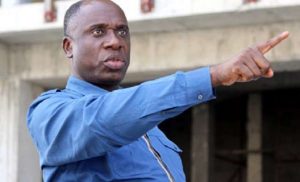


Amaechi who was inspecting the Itakpe-Warri rail line on Friday, June 27, said that Buhari would win in Kano, Sokoto and Bauchi even if he was brought on a “sick bed”.
But replying the minister, Kwankwaso’s spokesperson, Binta Spikin said: “Even if the government puts whatever in place, there is no way President Buhari will win in Kano, there’s no way.”
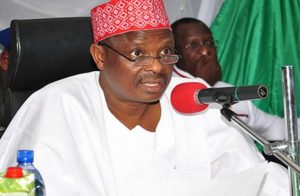


Then Senate President Bukola Saraki and his political protege, Governor Abdulfatah Ahmed of Kwara State, decided to align with the opposition PDP.
Explaining his decision to defect from the APC, Saraki said in part, “While I take full responsibility for this decision, I will like to emphasise that it is a decision that has been inescapably imposed on me by certain elements and forces within the APC who have ensured that the minimum conditions for peace, cooperation, inclusion and a general sense of belonging did not exist.
“They have done everything to ensure that the basic rules of party administration, which should promote harmonious relations among the various elements within the party were blatantly disregarded. All governance principles which were required for a healthy functioning of the party and the government were deliberately violated or undermined. And all entreaties for justice, equity and fairness as basic preconditions for peace and unity, not only within the party, but also the country at large, were simply ignored, or employed as an additional pretext for further exclusion.
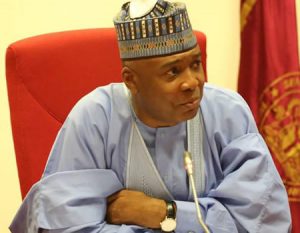


“The experience of my people and associates in the past three years is that they have suffered alienation and have been treated as outsiders in their own party. Thus, many have become disaffected and disenchanted. At the same time, opportunities to seek redress and correct these anomalies were deliberately blocked as a government-within-a-government had formed an impregnable wall and left in the cold, everyone else who was not recognized as “one of us”. This is why my people, like all self-respecting people, would do, decided to seek accommodation elsewhere.”
This was after Governor Samuel Ortom of Benue had on June 26 bid the party farewell, days after he accused the party of giving him a “red card”. Predictably, several state lawmakers and 13 local government chairmen followed the governor to the PDP.
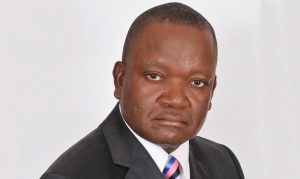


In the same vein, Governor Aminu Tambuwal of Sokoto State also took a bow from APC and teamed up with the PDP.
In announcing his defection from the party, Tambuwal, a former Speaker of the House of Representatives, said, “As the speaker of the House of Representatives then, I left my comfort zone to be involved in the struggle for the enthronement of purposeful leadership for the citizens of our dear country.
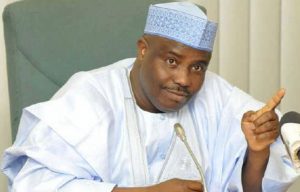


“Now, almost four years into what ought to be a new order as desired and elected by Nigerians, the nation is unfortunately going through the most difficult and precarious times, since the Civil war; with ethno, religious and regional distrust at its highest ebb.
“This development had often been blamed on political opponents. Meanwhile, there are issues of brazen inequity and capacity and questionable distribution of appointments/projects. This is in addition to lack of statesmanship in responding to national issues, among other things that are aggravating the anomaly.”

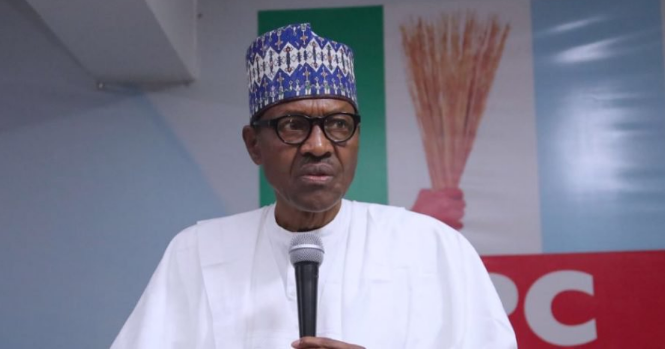

Leave a Reply